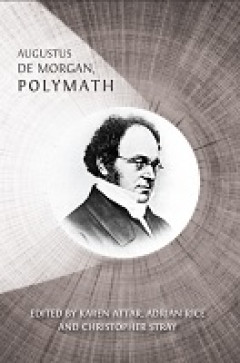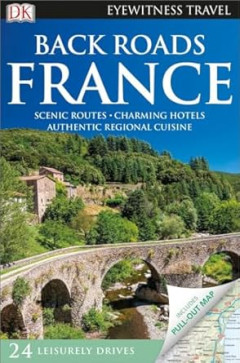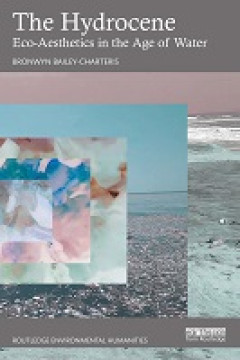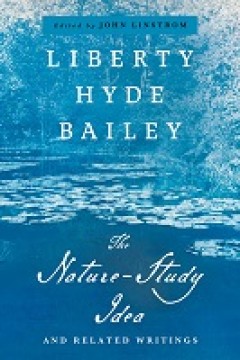Ditapis dengan
E-book Grassroots Innovation Movements
In August 2015, while we were writing this book, a group of sustainability activists were gathering in the grounds of a borrowed château on the outskirts of Paris. They were intent upon ‘eco-hacking’ the future. What this meant was turning the château into a temporary innovation camp, equipped with the tools for develop-ing a variety of technologies of practical and symbolic…
- Edisi
- -
- ISBN/ISSN
- 9781315697888
- Deskripsi Fisik
- 241 hlm
- Judul Seri
- -
- No. Panggil
- 338.9 SMI g
E-book Reign of the Beast : The Atheist World of W. D. Saull and his Museum o…
So warned the appalled editor of theChurch of England Magazine in 1840, after leaving a talk in a socialist hall by the London wine merchant and museum owner William Devonshire Saull (1783–1855). It was a reminder that the new science of the earth was not only startling and fashionable, but dangerous in dirty hands. Dissidents were harnessing geological armaments for use against t…
- Edisi
- -
- ISBN/ISSN
- 9781805112419
- Deskripsi Fisik
- 678 hlm
- Judul Seri
- -
- No. Panggil
- 576.8 DES r

E-book Augustus De Morgan, Polymath: New Perspectives on his Life and Legacy
When Augustus De Morgan died in 1871, he was described as ‘one of the profoundest mathematicians in the United Kingdom’ and even as ‘the greatest of our mathematicians’. But he was far more than just a mathematician. Because much of his voluminous written output on various subjects was scattered throughout journals and encyclopaedias, the breadth of his interests and contributions has b…
- Edisi
- -
- ISBN/ISSN
- 9781805113263
- Deskripsi Fisik
- 388 halaman, ilus.
- Judul Seri
- -
- No. Panggil
- 925 ATT a

E-book Rethinking the Andes–Amazonia Divide : A cross-disciplinary exploration
Maps in this book were reproduced by Paul Heggarty from maps provided by chapter authors, by converting them into a GIS (Geographic Information System) database, collated and enriched for South America for the purposes of this book. All data used on the maps are thus geo- referenced – set to actual latitude and longitude coordi-nates – as precisely as possible. Individual p…
- Edisi
- -
- ISBN/ISSN
- 9781787357358
- Deskripsi Fisik
- 421 hlm
- Judul Seri
- -
- No. Panggil
- 980 PEA r
E-book Animals and Medicine : The Contribution of Animal Experiments to the C…
The Research Defence Society (RDS) was founded in 1908 by Dr Stephen Paget, son of the eminent Victorian surgeon, Sir James Paget. Its role was to defend scientists conducting medical research using animals and to inform the public about the importance of animal experimentation. In its first year it attracted a membership of 2000 which included scientists in th…
- Edisi
- -
- ISBN/ISSN
- 9781783741199
- Deskripsi Fisik
- 246 hlm
- Judul Seri
- -
- No. Panggil
- 590.7 BOT a
E-book A Matter of Trust : Building Integrity into Data, Statistics and Recor…
The Sustainable Development Goals (SDGs) initiative has the potential to set the direction for a future world that works for everyone. The SDGs were approved by 193 United Nations member countries in September 2016 to help guide global and national development policies in the period to 2030. The 17 goals build on the successes of the Millennium Development Goals, while also includin…
- Edisi
- -
- ISBN/ISSN
- 9781912250356
- Deskripsi Fisik
- 269 hlm
- Judul Seri
- -
- No. Panggil
- 300.285 AMB a

E-book Eyewitness Travel: Back Roads France
DK Eyewitness Travel Guide: Back Roads France will take you on scenic routes to discover charming villages, local restaurants, and intimate places to stay. Unearth the real soul of this magical region with all the practical information you could need, from road conditions and lengths of drives to parking information and opening hours for local attractions. Twenty-five themed drives, each …
- Edisi
- -
- ISBN/ISSN
- 9781465439635
- Deskripsi Fisik
- 266 halaman, ilus.
- Judul Seri
- -
- No. Panggil
- 910 BAI e
E-book Agricultural and Food Controversies: What Everyone Needs to Know®
The world is more interested in issues surrounding agricultural and food issues than ever before. Are pesticides safe? Should we choose locally grown food? Why do some people embrace new agricultural technologies while others steadfastly defend traditional farming methods? In the debates about organic food, genetically modified organisms, and farm animal welfare, it's not always clear what the …
- Edisi
- -
- ISBN/ISSN
- 9780199368426
- Deskripsi Fisik
- 95 halaman
- Judul Seri
- -
- No. Panggil
- 338.1 NOR a
E-book The Grid and the Park : Public Space and Urban Culture in Buenos Aires…
In 1887, as a result of the federalization of Buenos Aires carried out at the begin-ning of the decade, the government of the Province of Buenos Aires transferred to the national government additional land to enlarge the capital, from which, a year later, its definitive limits were to be drawn (the current General Paz Avenue).1The municipality had until then a little over 4,000 he…
- Edisi
- -
- ISBN/ISSN
- 9781951634216
- Deskripsi Fisik
- 479 hlm
- Judul Seri
- -
- No. Panggil
- 902 GOR t

E-book The Hydrocene: Eco-Aesthetics in the Age of Water
This book challenges conventional notions of the Anthropocene and champions the Hydrocene: the Age of Water. It presents the Hydrocene as a disruptive, conceptual epoch and curatorial theory, emphasising water's pivotal role in the climate crisis and contemporary art. The Hydrocene is a wet ontological shift in eco-aesthetics which redefines our approach to water, transcending anthropocentric, …
- Edisi
- -
- ISBN/ISSN
- 9781032501321
- Deskripsi Fisik
- 207 halaman
- Judul Seri
- -
- No. Panggil
- 333.7 BAI t
E-book Just Faith : Glocal Responses to Planetary Urbanisation
rantor, on the one hand, can be understood as the Empire in its most unbridled form, colonising and governing all surrounding worlds and extracting from them what the Empire required for its own inhabitants. This intensity was matched only by the sheer precarity it dealt, leading to a coup staged by rebel leader Gilmer, displacing Trantor and the imperial family. Over time it was the farmers, …
- Edisi
- -
- ISBN/ISSN
- 9781928396666
- Deskripsi Fisik
- 398 hlm
- Judul Seri
- -
- No. Panggil
- 200.1 AGU j
E-book Get Out of Your Mind & Into Your Life for Teens a Guide to Living an E…
This book is designed to help you become stronger and develop skills that we call mindful warrior skills. We get that this might sound a little weird right now. What is a mindful warrior, anyway? Well, it isn’t someone who runs out onto the field of battle like a maniac. It isn’t someone who acts impulsively and aggressively. And it isn’t someone who’s cold and calculating, like a psych…
- Edisi
- -
- ISBN/ISSN
- -
- Deskripsi Fisik
- 154 hlm
- Judul Seri
- -
- No. Panggil
- 155.25 CIA g

E-Book The Nature-Study Idea: And Related Writings
In The Nature-Study Idea, Liberty Hyde Bailey articulated the essence of a social movement, led by ordinary public-school teachers, that lifted education out of the classroom and placed it into firsthand contact with the natural world. The aim was simple but revolutionary: sympathy with nature to increase the joy of living and foster stewardship of the earth. With this definitive edition, John …
- Edisi
- -
- ISBN/ISSN
- 9781501772610
- Deskripsi Fisik
- 378 halaman
- Judul Seri
- -
- No. Panggil
- 500 BAI t

EXO K-Pop Superstars
Meet EXO, a K-Pop sensation like no other, in the first unofficial biography of the band who have been topping charts and stealing hearts since 2012. Nine boys, from South Korea and China, are taking the world by storm. Their catchy songs, beautiful music videos and incredible live performances have won them millions of passionate fans who have stuck with them through the bad times and watched…
- Edisi
- Cet. 1
- ISBN/ISSN
- 9781789291148
- Deskripsi Fisik
- 224 hlm; 15 x 23,5 cm
- Judul Seri
- -
- No. Panggil
- 780.92 BES e
E-book Transformative pathways to sustainability : Learning across discipline…
This book tries to address these questions. The research detailed in this volume (which took place pre-Covid-19) engages with the specificities of dif-ferent contexts around the world, while seeking general lessons that can be drawn about transformations to sustainability and the role of research within them. It thus documents a new approach (or approaches) that…
- Edisi
- -
- ISBN/ISSN
- 9780429331930
- Deskripsi Fisik
- 267 hlm
- Judul Seri
- -
- No. Panggil
- 338.9 ABR t
E-book Evolutionary Genomics : Statistical and Computational Methods
The typical definition of the genome is often dualistic, referen-cing both structural features and its function to store and transmitbiological information [4]. For example, the US National Institutesof Health (NIH) uses the following definition: “A genome is anorganism’s complete set of DNA, including all of its genes. Eachgenome contains all of the information needed to build and main-tai…
- Edisi
- -
- ISBN/ISSN
- 9781493990740
- Deskripsi Fisik
- 777 hlm
- Judul Seri
- -
- No. Panggil
- 572.8 ALT e
E-book Negotiating Climate Change in Crisis
In all the talk about the Paris Agreement, reached at the twenty-first Conference of Parties (COP21) of the United Nations Framework Convention on Climate Change in Paris in 2015, it is sometimes forgotten that the world’s political leaders have held negotiations about climate change at the highest possible level for at least three decades. Many have known about …
- Edisi
- -
- ISBN/ISSN
- 9781800642621
- Deskripsi Fisik
- 475 hlm
- Judul Seri
- -
- No. Panggil
- 363.73874 APA n
E-book The Florida-Friendly Landscaping Guide to Plant Selection and Landscap…
A Florida-Friendly Landscape is a quality landscape that is designed, installed, and maintained according to the nine Florida-Friendly Landscaping™ principles. The nine principles seek to reduce environmental impact from landscaping by properly applying water, fertilizer, and pesticides, creating wildlife habitat, preventing erosion, recycling yard waste, and employing other practices based o…
- Edisi
- -
- ISBN/ISSN
- -
- Deskripsi Fisik
- 114 hlm
- Judul Seri
- -
- No. Panggil
- 719 HUN t
 Karya Umum
Karya Umum  Filsafat
Filsafat  Agama
Agama  Ilmu-ilmu Sosial
Ilmu-ilmu Sosial  Bahasa
Bahasa  Ilmu-ilmu Murni
Ilmu-ilmu Murni  Ilmu-ilmu Terapan
Ilmu-ilmu Terapan  Kesenian, Hiburan, dan Olahraga
Kesenian, Hiburan, dan Olahraga  Kesusastraan
Kesusastraan  Geografi dan Sejarah
Geografi dan Sejarah